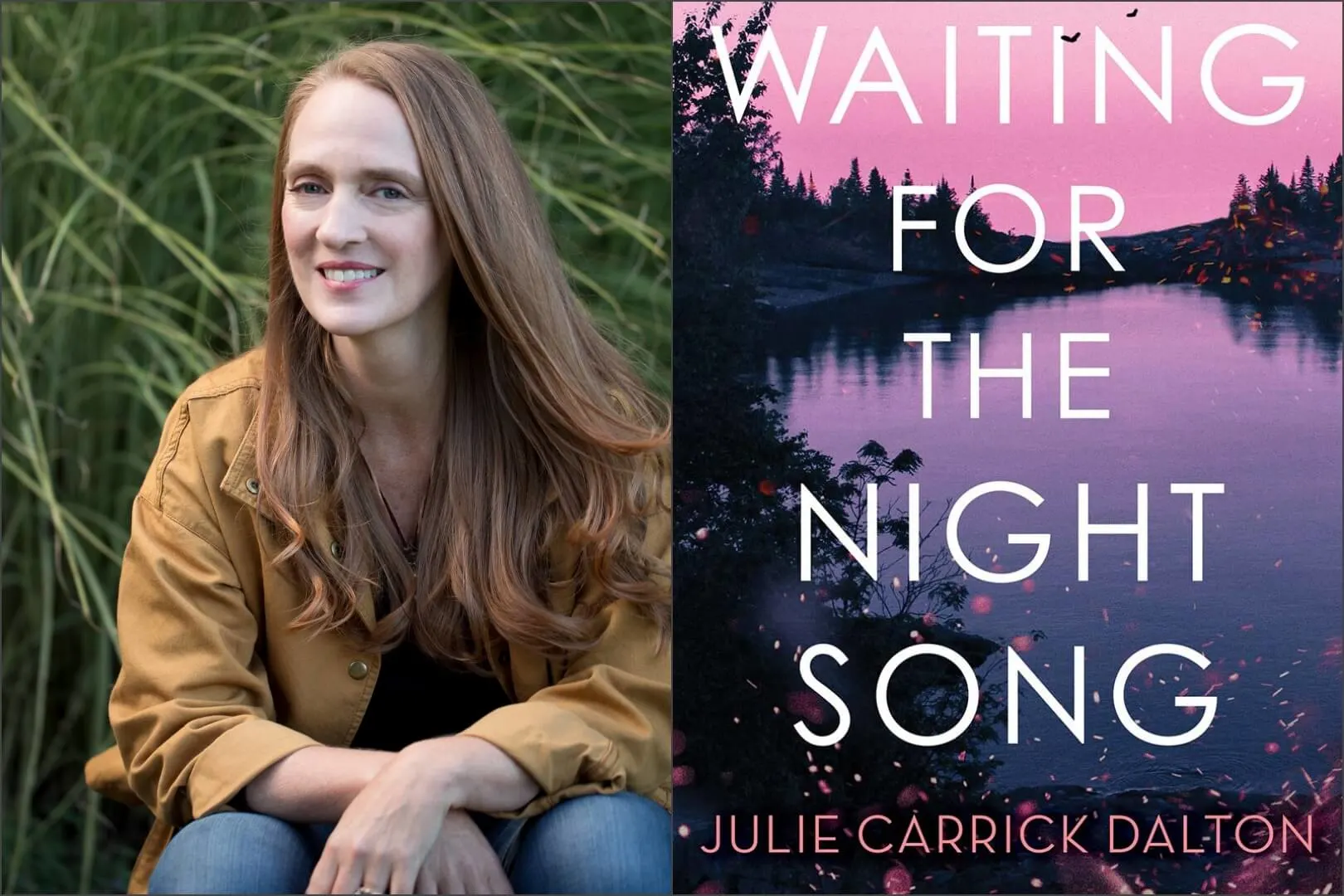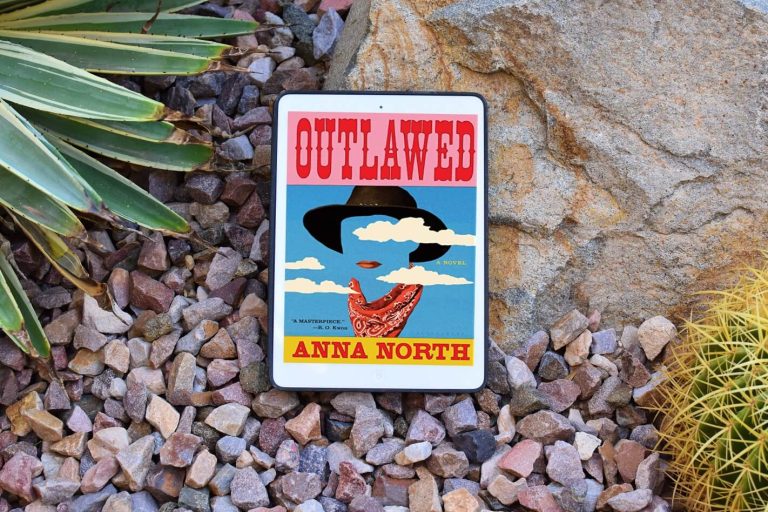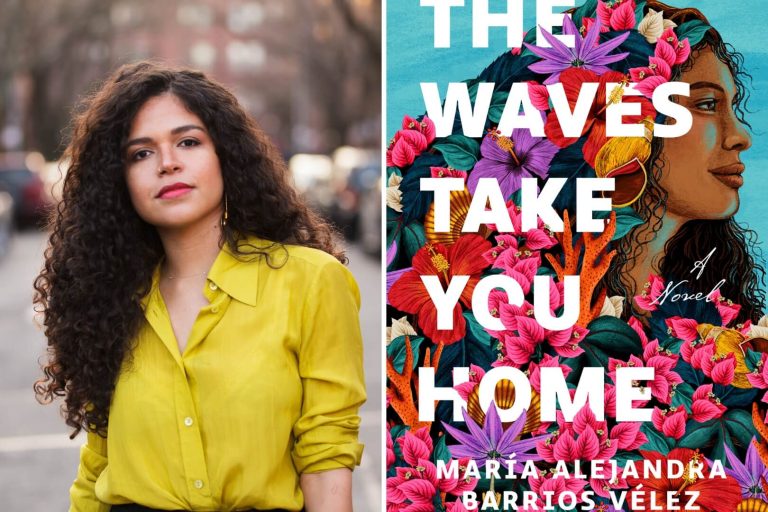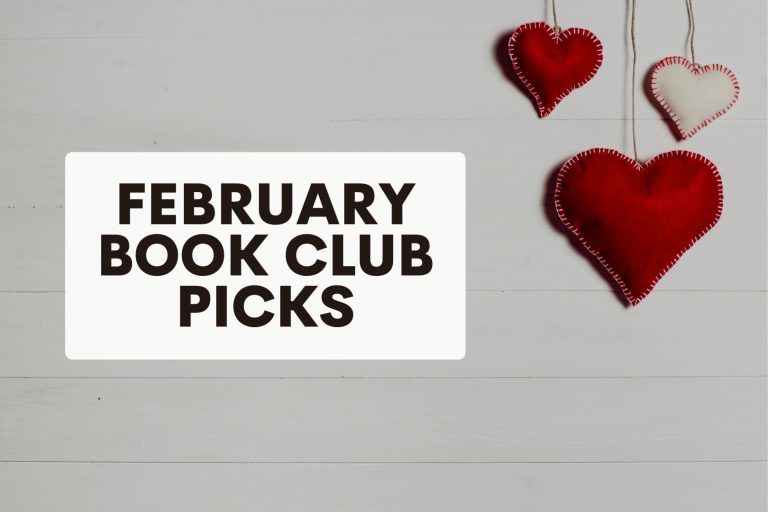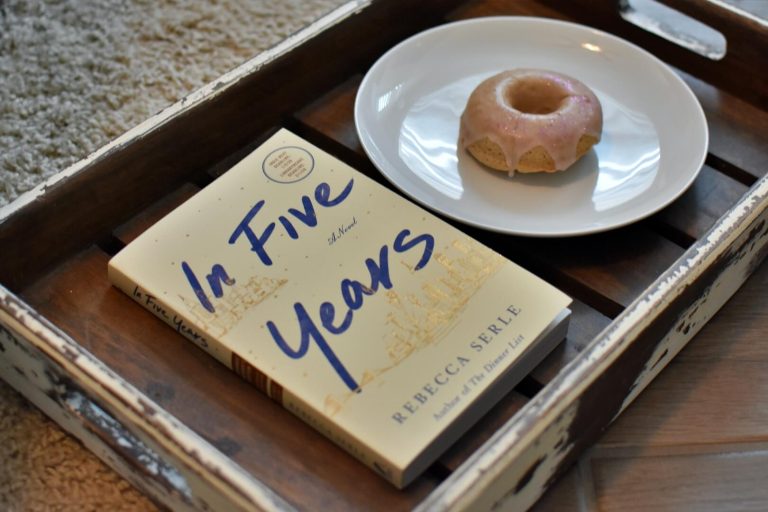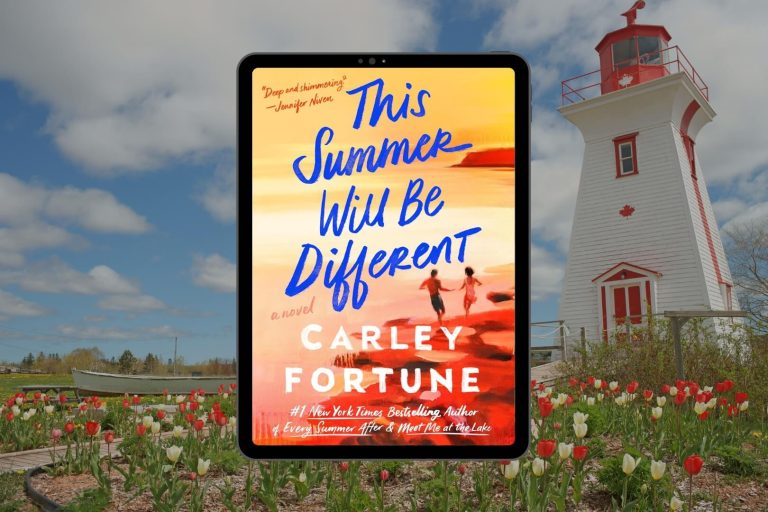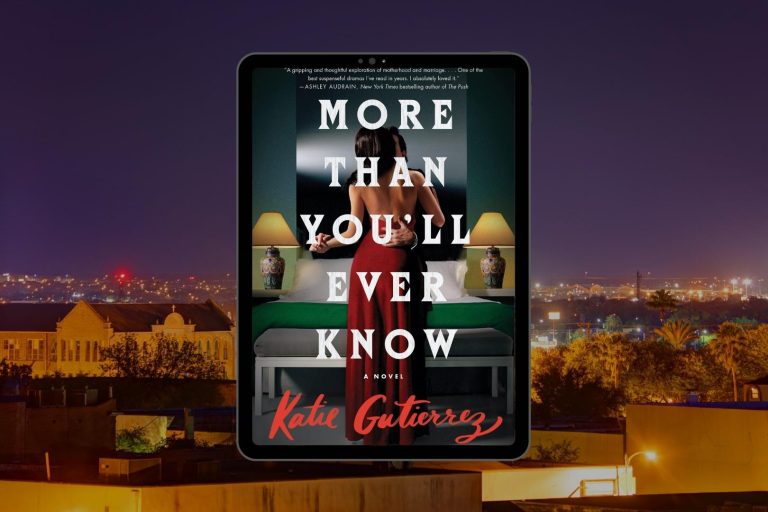Julie Carrick Dalton is the author of the recently released Waiting for the Night Song.
Julie Carrick Dalton is a Boston-based journalist. Her writing has appeared in The Boston Globe, BusinessWeek, The Hollywood Reporter, Electric Literature, The Chicago Review of Books, and other publications. She contributes to DeadDarlings, The Writer Unboxed, and GrubStreet’s writer’s blogs. Waiting for the Night Song is her debut novel, which I also selected for a January book club pick.
Here’s the synopsis:
Cadie Kessler has spent decades trying to cover up one truth. One moment. But deep down, didn’t she always know her secret would surface?
An urgent message from her long-estranged best friend Daniela Garcia brings Cadie, now a forestry researcher, back to her childhood home. There, Cadie and Daniela are forced to face a dark secret that ended both their idyllic childhood bond and the magical summer that takes up more space in Cadie’s memory then all her other years combined.
Now grown up, bound by long-held oaths, and faced with truths she does not wish to see, Cadie must decide what she is willing to sacrifice to protect the people and the forest she loves, as drought, foreclosures, and wildfire spark tensions between displaced migrant farm workers and locals.
Waiting for the Night Song is a love song to the natural beauty around us, a call to fight for what we believe in, and a reminder that the truth will always rise.
Let’s get to know Julie as she talks favorite novels, book inspiration, writing process and much more!
What are some of your favorite novels?
The Poisonwood Bible and Flight Behavior by Barbara Kingsolver; The Dovekeepers by Alice Hoffman; The Parable of the Sower by Octavia Butler; The Overstory by Richard Powers; The Persian Pickle Club by Sandra Dallas, Jane Eyre by Charlotte Brontë; Gun Island by Amitav Ghosh; Migrations by Charlotte McConaghy.
When did you know you wanted to become an author?
I’ve always written stories and poetry as a hobby. I used to write puppet show scripts and fan fiction scripts of Wonder Woman and Mork and Mindy TV shows as a kid. But I also really loved science and chose Pre-Med/Biochemistry as my major when I went to college. Sophomore year, I stumbled into a journalism class and changed course. I continued dabbling in fiction on the side while working as a newspaper and magazine journalist for more than a decade. I earned a Master’s in Creative Writing in 2005 and that’s when I started taking fiction seriously. I got involved with several writers’ groups and committed to writing a novel. Once I made that mental commitment, I never considered giving up. I think I’ve always been an author. I just didn’t realize it until later in life.
What inspired you to write Waiting for the Night Song?
When my four kids were younger, I used to take them canoeing and we would pick blueberries from wide swaths of open shoreline. As the kids got older they started asking whose land it was and if we were stealing the berries. The truth was, I had no idea who owned the land. There were no houses nearby, and I didn’t think anyone would mind some children taking a few handfuls of wild berries from a canoe. But my kids pressed me on it and I found myself inventing rules to justify why it was okay to take the berries. Don’t take all the berries from any one bush. Always stay in the canoe. At some point, I realized I was leaning on conveniently manufactured rules to justify my actions. Taking a few handfuls of blueberries was a benign action. No one else would have picked those berries. No one would have miss them. But was I teaching my kids it was okay to rely on manufactured rules to justify behavior that was not justifiable, even if it seemed benign? Those excuses I invented became the basis for The Poachers’ Code, a code of ethics the characters in my book create to shield themselves from their own questionable actions. I pushed my characters to an extreme limit and forced them to tackle the ethical questions I wrestled with while picking berries with my kids – but with life-and-death stakes.
What is your writing process like?
I wish I was one of those writers with a disciplined writing practice. I tend to write in fits and bursts. All day, every day for weeks. Then not at all for a couple of weeks. I usually write at my kitchen counter or near our fireplace, but I also enjoy writing in cafes (back when I could go to cafes.) When my four kids were younger, I used to write in my car when I waited to pick them up from school or activities. For me, it isn’t about where I am or what time of day it is. It’s not about quiet or background noise. It’s about my state of mind. I’m either in writing mode, or I’m not. I wish I could control that part better because when I’m writing mode it feels great and I can write for as long as I can stay awake. But when I’m on the outside, I’m always fighting to get back in, and it’s frustrating.
Do you have a favorite chapter or part in the book?
I really love the opening of Chapter Two where we meet my main character Cadie as a young girl. She sneaks out of her house early in the morning and jumps of the pier into the lake to rescue a drifting rowboat. This is the scene that sets everything else – the good and the bad – in motion. It’s the moment Cadie will always look back on and wonder: What if I had never jumped in the water?
What are you currently reading and what’s on your TBR (to be read) list?
I’m currently reading Hades, Argentina by Daniel Loedel and Wild Women and the Blues by Denny S. Bryce. I’m looking forward to reading Better Luck Next Time by Julia Claiborne Johnson and Body of Stars by Laura Maylene Walter.
Click here to order Waiting for the Night Song on Amazon.
